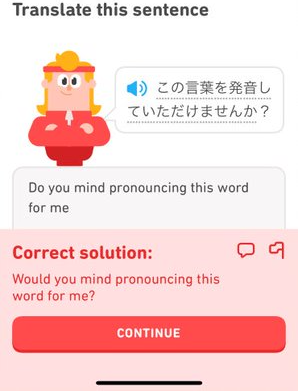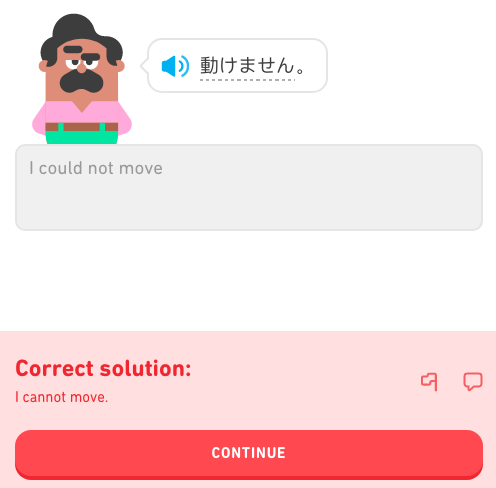To modify the meaning of a verb in English, we can make use of modal verbs. These include can, could, would and so on. Each modal verb adds a meaning to the main verb depending on the modal verb. For example, I cannot move. cannot is the uncontracted form of can't and this is can contracted with not, which negates the meaning of can. That is, it expresses the inability to do something and that something is move. In other words, we don't say moven't to express the inability to move, we have to instead use the modal verb can and negate it.
In Japanese, however, we inflect that verb to express inability. For example, the polite negative counterpart of 動く (to move) is 動けません (to not move). Thus, it translates as I cannot move. Why is it so? Unlike Japanese, verbs do not inflect to negate themselves and, because we want to express inability, we negate can.
As for 言葉を発音していただけませんか, we break it down to the following:
- 言葉を発音する
- いただく
- か (question marker)
いただく (to receive) is used instead of もらう (to receive) when you want to show respect to the giver, which also denotes humbleness. Now, ask yourself, what's the closest thing we have to いただく when used for petitions in English? Well, that's would. We use would for polite requests. Hence, would is used.
のだ/んだ
のだ or its polite counterpart のです follows a clause when the speaker wants...
- to give an explanation
- to add a comment related to the conversational context
- to elicit a reply
- to soften the tone when requesting, suggesting, or demanding.
の contracts to a nasal sound ん in colloquial speech.
The meaning it conveys in 窓を開けていただきたいんですが is the fourth one.
Example sentences
A) 今{いま}とても忙{いそが}しいんです。(After verbs and adjectives in the dictionary form)
I'm tied up right now. (1 or 2)
B) さっき彼女{かのじょ}に電話{でんわ}したのです。(After verbs and adjectives in ta-form)
I phoned her a while ago. (1 or 2)
C) 今日{きょう}は暇{ひま}なんです。(After adjectival nouns or nouns + な/だった)
I'm free today. (1 or 2)
D) テニスはするんですか。(Used with questions)
Do you play tennis? (3)
Depending on the context, for example, you may yield A) when you're asked for help or to let somebody know in advance you won't be able to help because you're busy. B) and C) can be used in a similar way. Moreover, you may yield D) if you're curious as to why he/she is good a tennis, perhaps, he/she easily won against you in a tennis match.
が
が can be used at the end or in-between clauses to express conflict.
When used with petitions, it roughly means [PETITION], but it's okay If you don't. The meaning it conveys in 窓を開けていただきたいんですが is that one.
Example sentences
E) 今{いま}とても忙{いそが}しいんですが。
I'm tied up right now.
F) さっき彼女{かのじょ}に電話{でんわ}したのですが、出{で}ませんでした。
I phoned her a while ago, but she didn't answer.
E) has a very similar meaning to A), but E) is more emphatic. This basically means But I'm very busy right now, so... or The problem is... I'm very busy. It indicates that being busy is a problem. As for F), が means but because you're establishing a conflict with what is said in the first clause and the second clause.


